Aquarevo development showcases urban sensitive water design
It’s official: 2016 was the hottest year on record. And rising temperatures, plus population growth, mean increased demand for water. To ensure future needs are met, effective environmental leadership is critical. And it’s organisations like South East Water, a partner of the CRC for Water Sensitive Cities (CRCWSC), that are forging both new solutions and smarter management of existing natural resources.
Melbourne’s newly unveiled Aquarevo community – a progressive, water-sensitive urban development by Villawood Properties and South East Water – is the kind of solution the CRCWSC helps enable. With its first release of 44 blocks of land selling out within hours, Aquarevo showcases industry-leading innovation backed by research and delivered through government, industry, and academic collaboration. It’s a ground-breaking enterprise: a template for future-focused, environmentally responsible communities. The CRCWSC contributed by bringing the key stakeholders together to innovate in the early planning stage through its signature Research Synthesis workshops, and provided critical evidence to support the adoption of leading water-sensitive initiatives at Aquarevo.
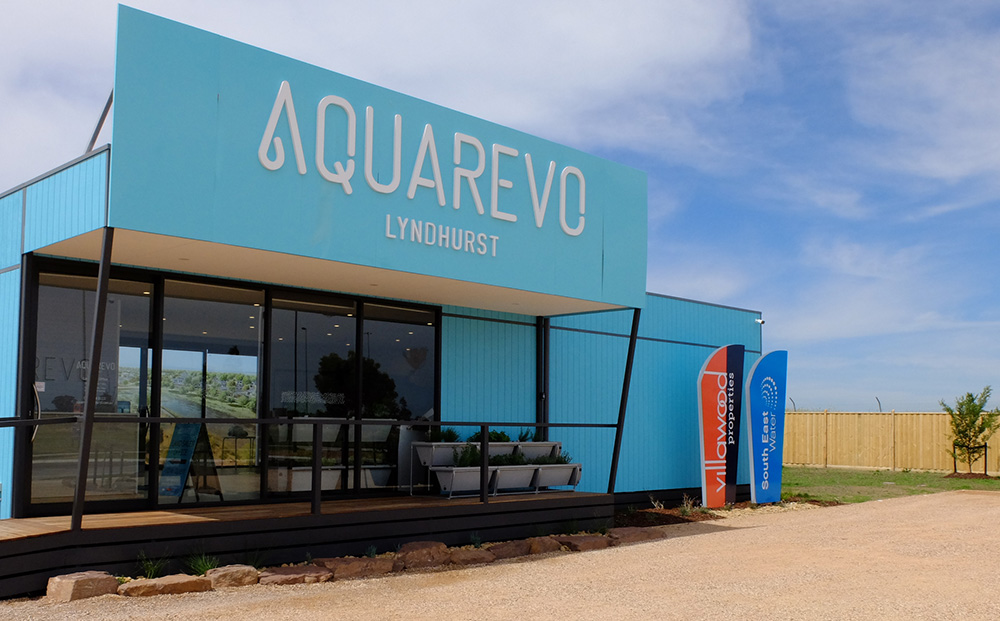
Powerful partnerships
With the shared goal of designing an urban community more resilient to climate extremes, the CRCWSC supported South East Water and Villawood Properties to explore how they could incorporate innovative urban design and water management initiatives while creating a sustainable, liveable, and resilient community. In facilitating discussion workshops, the CRCWSC provided a creative space, fostering collaboration and creating the conditions for rich inquiry. “The CRC offers an independent, informed perspective,” explains Ross Allen, who led the CRCWSC Research Synthesis workshop. “This enables the CRCWSC to ‘broker’ mutually beneficial outcomes between multiple stakeholders with differing needs.” Incorporating environmental innovation into a large-scale development without impacting housing affordability was always going to be challenging. In addition to enabling productive collaboration, the CRCWSC provided scientific evidence to support South East Water’s proposed technology initiatives. The CRCWSC will continue its involvement in Aquarevo, working with stakeholders to explore landscape initiatives identified through earlier interactions. “With the master plan complete, we’re now working with the CRCWSC and City of Casey to finalise elements of the built form,” says Terry Dalgleish, South East Water’s Group Manager of Development.
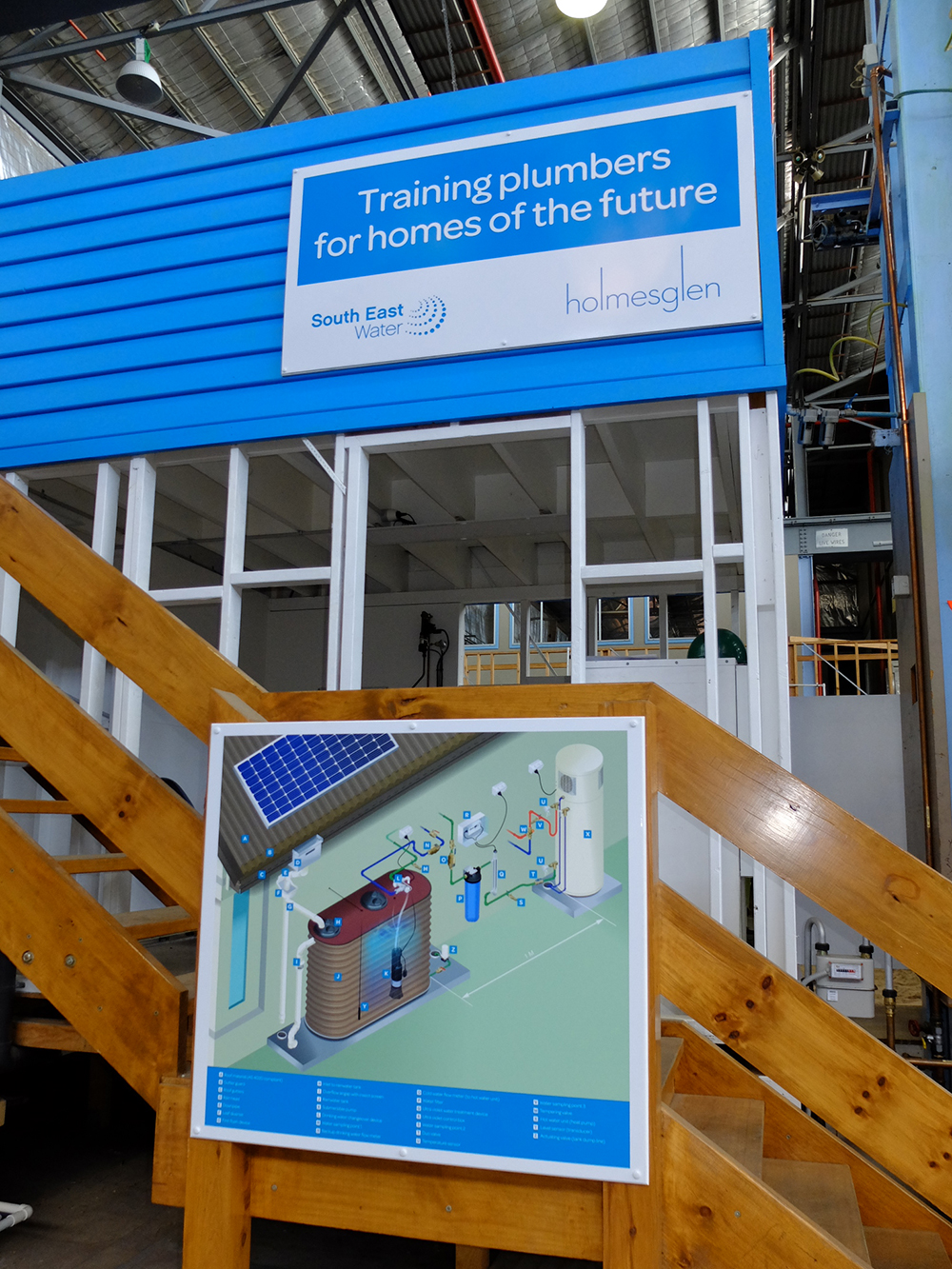
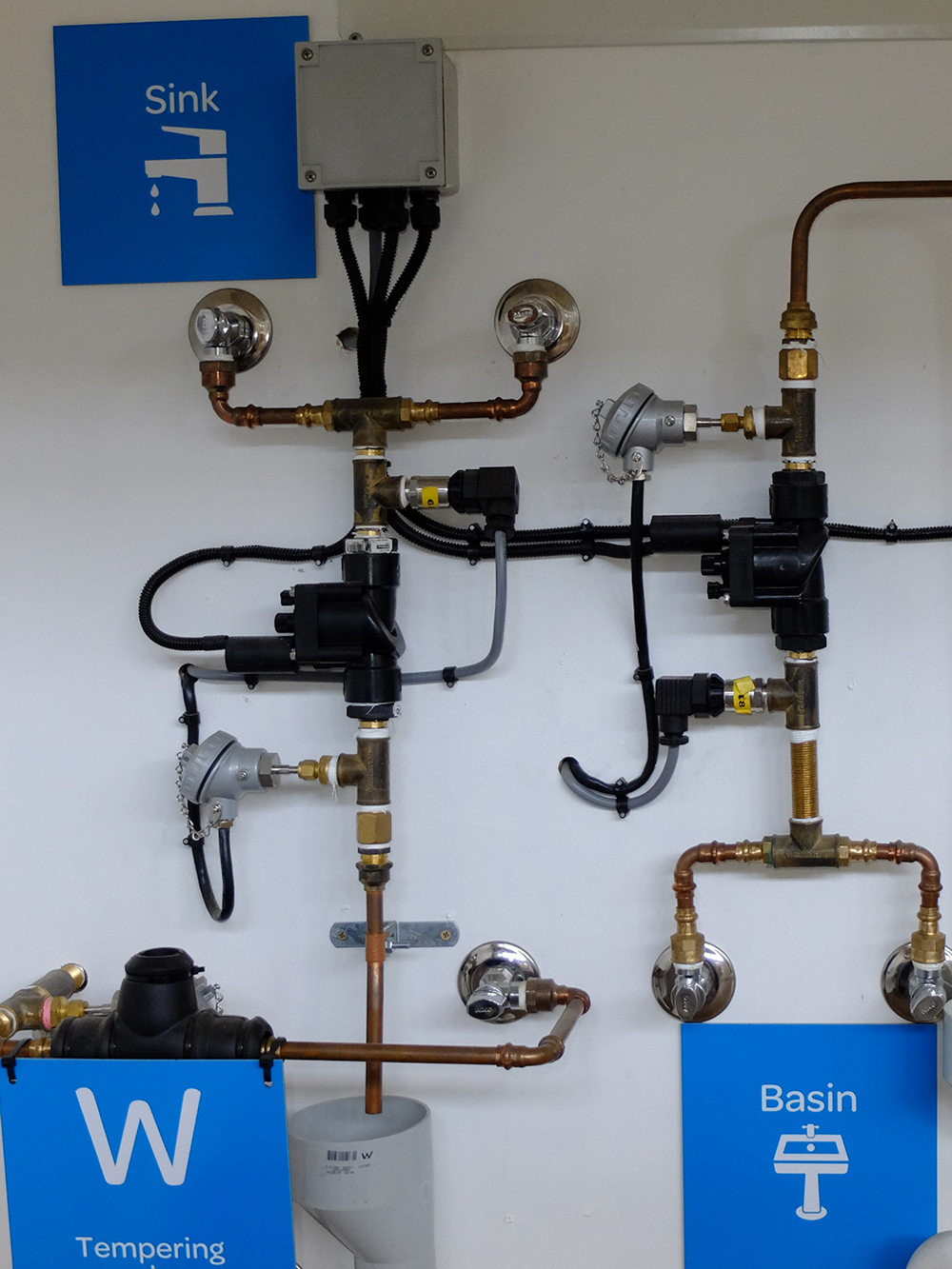
Turning rainwater into hot water
With the unprecedented scale of climate change, even people who proactively engage with the issue can feel powerless to make a difference. The homes of Aquarevo are landmark examples of sustainability innovation on a domestic scale: they offer science-supported solutions accessible to the individual. One of the most significant features is the homes’ capacity to turn their own rainwater into hot water for use in the laundry and bathroom. “Collecting rainwater, screening, filtering and treating it, and creating clean, hot water for showers is a logical yet revolutionary measure,” Terry explains. Combined with Aquarevo’s use of recycled water, the rainwater to hotwater technology alone reduces each home’s consumption of drinking-quality water by up to 70%. For any country, let alone one as arid as Australia, such savings are significant.
Yet despite this, it’s not always easy to promote the adoption of such measures. “The CRCWSC offered us the profile and the scientific integrity necessary to promote our initiatives to government and the local council,” Terry says. “Workshopping our ideas and exploring possibilities allowed us to maximise the opportunity to make a real environmental difference.” And Aquarevo is leading the way. “This could become a template for future developments,” he says. “We hope to influence environmental and building policy, once the homes are built and we can accumulate further data.” Innovation comes with challenges, particularly when the solutions must be equally acceptable to various interested parties. “The CRCWSC’s research supports the initiatives developed by South East Water and Villawood,” Ross explains. “It helps mitigate risks, provides evidence of success, and is therefore crucial in gaining popular support.”
The CRCWSC also contributed new perspectives. Aquarevo’s initial design featured a waterway on the property boundary. Outcomes from the workshop included relocation of the waterway to the centre of the development, maximising water frontage and land value, and engaging the community around a central element of the landscape.
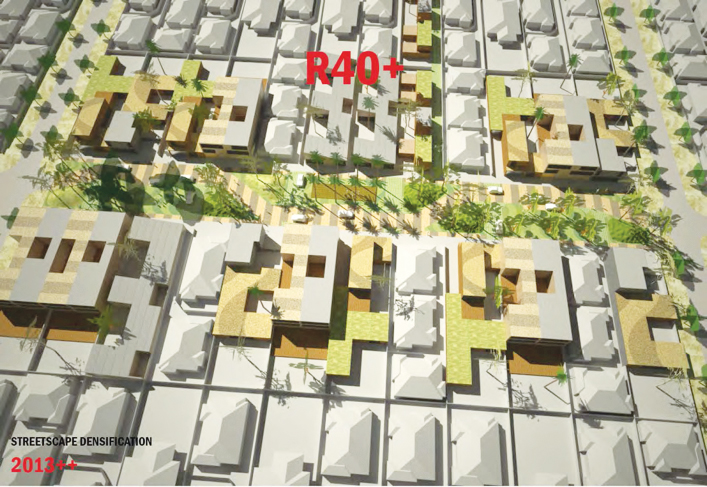
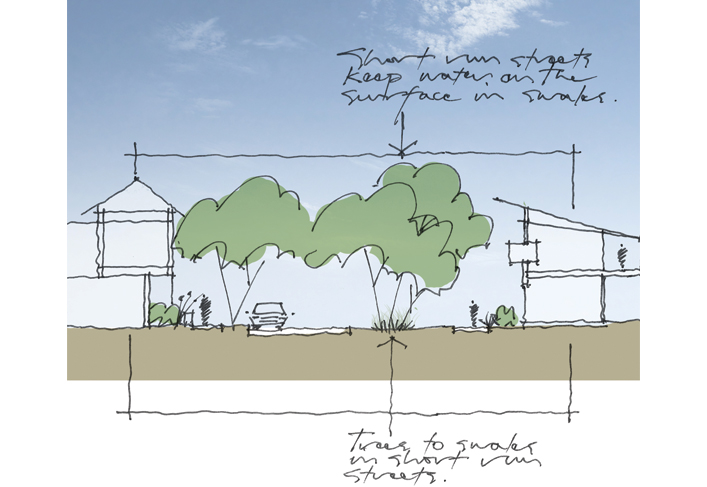
Ongoing collaboration
The industry-leading strategies developed through the CRCWSC Research Synthesis workshops, and subsequently substantiated with supporting evidence, are now taking form. Aquarevo’s first homes will be constructed this year, with communal spaces soon to follow. “We are working with all parties on final outcomes for the landscape, public art, interpretations, and urban greening elements,” Terry explains.
Future offerings
These partnerships between research organisations, government and industry harness the skills and expertise of all parties, bringing about real change and giving momentum to much-needed progress. Supported by the CRCWSC’s strategic vision and scientific rigour, South East Water now occupies a leadership role in sustainable, environmentally responsible development. “We’re working now on what we call ‘Aquarevo and beyond’,” Terry says. “Other developers are keen to replicate what we are doing, and we’re keen to explore new possibilities and maintain our progressive position. These initiatives offer real promise, and real, research-backed solutions to global problems.”
Claire Waide for the Mind Your Way team